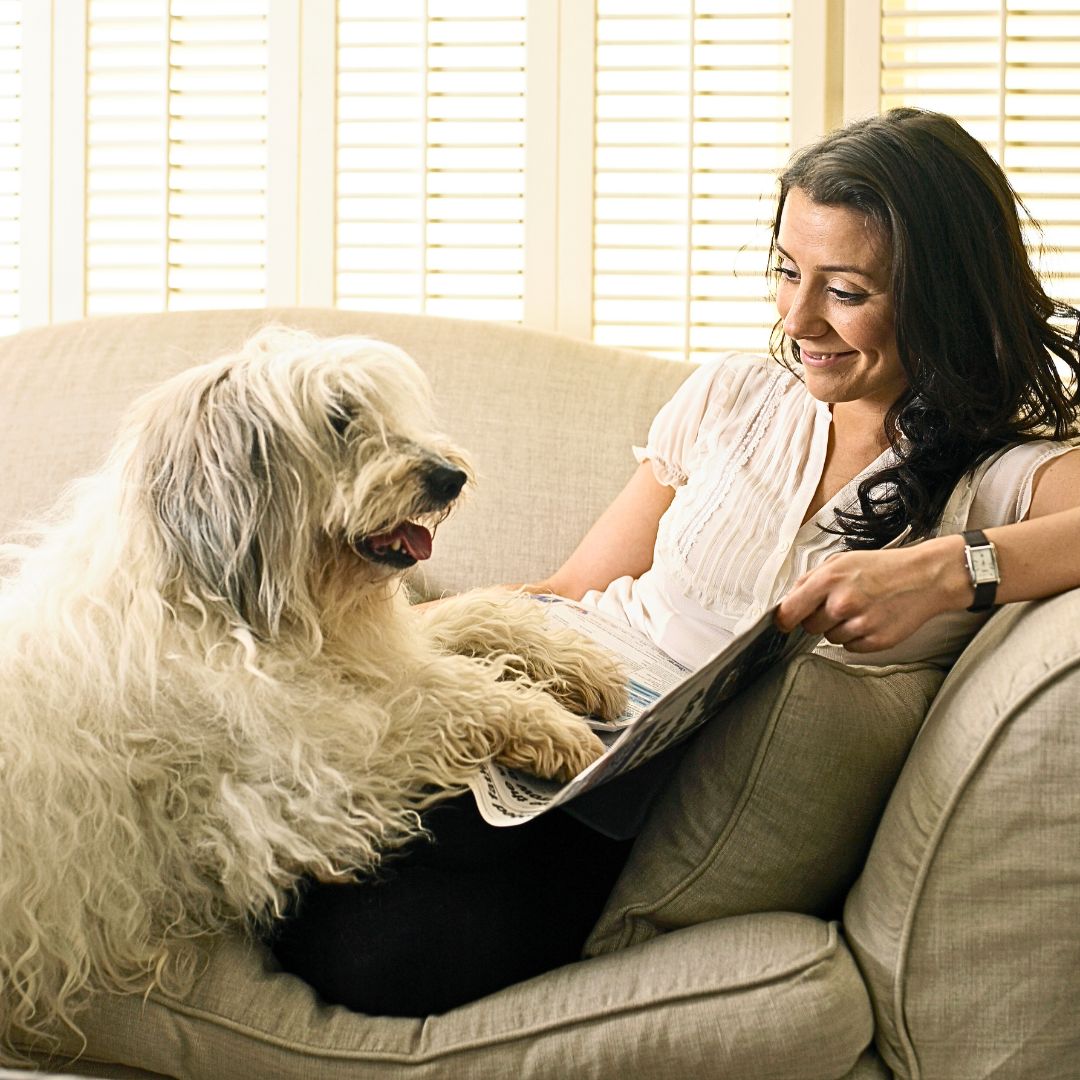How to Stop a Dog from Barking: A Comprehensive Guide with Answers to Frequently Asked Questions
Why Do Dogs Bark?
Dogs bark for various reasons, including communication, warning, and expressing emotions. Dogs will use verbal and nonverbal cues to communicate with us. Barking is a Natural Behaviour in dogs and is their way of communicating with humans and other animals. Dogs bark to alert their owners of potential danger, to express excitement or playfulness, or to demand attention. Some dogs may also bark excessively due to anxiety, boredom, or as a result of learned behaviour. Understanding the reasons behind a dog’s barking can help owners address excessive barking and improve their communication with their furry friend.
Identify the Cause of Your Dog’s Barking Habit
Those are some common reasons why dogs may bark excessively. Identifying the cause of your dog’s barking habit is crucial to address it effectively. For example, suppose your dog is barking due to separation anxiety. In that case, you may need to work on gradually desensitizing them to being alone and providing them with comforting and stimulating toys. If your dog is barking out of boredom, you may need to increase their exercise and playtime or provide them with interactive toys. Consulting with a professional dog trainer or behaviourist may also help address your dog’s barking habit.
Learn how to use positive reinforcement to stop your dog from barking.
Barking is a natural behaviour in dogs, but excessive barking can be a nuisance to you and your neighbours. However, it’s important to remember that dogs bark for various reasons, such as boredom, anxiety, fear, or excitement. Therefore, it’s crucial to understand the underlying cause of your dog’s barking before attempting to stop it.
Positive Reinforcement Techniques
A practical approach to stopping your dog from barking and encouraging good behaviour in your dog. It’s best to reward them rather than punish them for bad behaviour. It is known as favourable reinforcement. Here are some tips to help you train your dog to stop barking using positive reinforcement methods:
1. Identify the trigger: Observe what triggers your dog’s barking. Is it when someone comes to the door or when dogs see a squirrel outside? Understanding the cause of their barking will help you address the behaviour.
2. Reward good behaviour: Whenever your dog stops barking on their own or when you ask them to stop, reward them with treats, praise, or playtime. It will help them associate good behaviour with positive outcomes.
3. Teach the “quiet” command: Choose a specific command, such as “quiet” or “enough,” and use it consistently every time your dog barks. When they stop barking after hearing the command, reward them with treats and praise.
4. Provide mental stimulation: Often, excessive barking can stem from boredom or lack of mental stimulation. Give your dog puzzle toys and interactive games, or take them on regular walks to keep them mentally stimulated.
Training takes time and patience, so it’s best to be consistent and always use positive reinforcement techniques. By maintaining patience and practicing consistently, you can train your pet to stop incessant barking and create a tranquil living space for both of you.
Use Tools and Products That Can Help Control Barking Behaviour in Dogs
If you’re struggling with your dog’s excessive barking behaviour, several tools and products can help you control it.
Anti-bark collars, for example, are designed to emit a mild electric shock or vibration whenever a dog barks excessively. This type of collar is popular for pet owners who want to train their dogs to bark less without punishment.
Spray deterrents are another option for controlling barking behaviour. These products release a harmless mist of citronella or another unpleasant scent whenever a dog barks excessively. The idea is that the scent will distract the dog and discourage them from continuing to bark.
Ultrasonic devices are yet another option. These devices emit a high-pitched sound audible only to dogs when they bark excessively. The sound is unpleasant to dogs and can help discourage them from barking.
However, it’s important to note that the device used positive reinforcement training techniques. Punishing a dog for barking excessively without providing an alternative behaviour to replace it can lead to increased anxiety and other behavioural problems. Therefore, it’s always best to consult a professional dog trainer or behaviourist before using these tools or products on your furry friend.
Create a Calm Environment to Reduce Your Dog’s Anxiety and Stress Levels

Dogs are known to experience anxiety and stress, just like humans. Creating a calm environment for your furry friend is essential to help reduce their anxiety levels and keep them happy and healthy. Here are some tips on how to do just that:
1. Create a home-friendly space: Make sure your dog has a comfortable bed or crate to retreat to when it needs some alone time. You can also create a designated area for its toys, food, and water bowls.
2. Provide toys and activities for mental stimulation: Dogs love to play and explore, so providing them with interactive toys and puzzles can help keep their minds engaged and reduce stress. Try hiding treats around the house for them to find.
3. Stick to a regular exercise routine: Regular exercise is critical to keeping your dog physically and mentally healthy. Take dogs on daily walks or runs or play fetch in the backyard. Exercise helps to release endorphins, which help reduce anxiety.
Simple tips can help create a calm environment for your dog and reduce their anxiety levels. A happy and healthy dog will bring joy to your life for years.
Seek Professional Help if Necessary

If you’re experiencing issues with your dog’s health or behaviour, seeking professional help is vital. A veterinary consultation can provide insight into any potential medical problems your dog may be experiencing, and a professional dog trainer or behaviourist can help address any behavioural issues your dog may be exhibiting.
A veterinary consultation can involve a physical examination, diagnostic tests, and treatment recommendations for your dog’s health concerns. A professional dog trainer or behaviourist can assess your dog’s behaviour, identify any problematic behaviours, and develop a plan to modify those behaviours.
Remember, seeking professional help can ensure your dog receives the care and attention they need to live a happy and healthy life.
Implementing these tips and tricks can help your furry friend learn how to control barking habits. Remember that every dog is unique, so it’s essential to modify these methods based on your pet’s personality and preferences.
Techniques for Stopping Dog Barking:
Several methods can help stop a dog from excessive barking:
1. Identify the trigger: Observe when and what causes your dog to bark excessively. Boredom, fear, territoriality, separation anxiety, or excitement.
2. Positive reinforcement: Teach your dog to associate quiet behaviour with rewards such as treats and praise. It will encourage them to remain calm instead of barking.
3. Ignore the barking: Sometimes, dogs bark for attention. If you ignore them, they will eventually realize that barking is not an effective way to get attention.
4. Provide distractions: Give your dog toys or bones to keep them occupied and distracted from barking.
5. Training: Enroll your dog in obedience training classes to teach them basic commands such as “quiet.
6. Calming aids: Consider using calming aids such as pheromone diffusers or music to help relax your dog and prevent excessive barking.
Remember that stopping excessive barking takes patience and consistency. Always reinforce positive behaviour and avoid punishing your dog for barking, which may increase their anxiety and stress levels.
Stop Dog Barking
Q: Can I use anti-bark collars or devices?
A: You can use anti-bark collars or devices to help reduce excessive Barking in your dog. However, it’s crucial to choose a humane and safe option that does not cause harm or distress to your dog. It’s essential to consult with a professional dog trainer or behaviourist before using any anti-bark solution to ensure it is appropriate for your dog and situation. Additionally, remember that anti-bark collars or devices should not be the only solution and should be used with proper training and positive reinforcement techniques.
Q: What are some natural remedies for stopping dog barking?
A: There are a few natural remedies that can help stop excessive barking in dogs:
- Exercise: Providing your dog with a daily routine can reduce stress and anxiety, which can significantly cause excessive Barking.
- Training: Teach your dog basic obedience commands, such as “quiet” or “stop,” which can help them learn when it’s appropriate to bark and when it’s not.
- Distraction: Providing your dog with toys or puzzles can help distract them from barking at inappropriate times.
- Calming aids: Certain natural supplements, such as chamomile or lavender, can help calm your dog and reduce excessive Barking.
- Environmental changes: Changing the environment around your dog, such as adding curtains or a white noise machine to block out external noises, can also help reduce barking. Excessive barking can be a sign of underlying medical or behavioural issues, so it’s always best to consult with a veterinarian or professional dog trainer if the problem persists.
Q: Is it possible to train an older dog to stop excessive Barking?
A: Training an older dog to stop excessive Barking is possible. However, it may take more time and effort than training a younger dog. The first step in training an older dog is to identify the cause of the Barking. It could be due to anxiety, boredom, fear, or territorial behaviour. Once you have identified the reason, you can begin training using positive reinforcement techniques, such as rewarding the dog when it stops barking or distracting it with toys or treats. Consistency and patience are key when training an older dog, as they may have established habits that need retraining. Seeking advice from a professional dog trainer or behaviourist can also help develop a successful training plan.
Q: How long does it typically take for a dog to stop excessive Barking?
A: The time it takes for a dog to stop excessive Barking varies depending on the cause and the training method used. Sometimes, it may take a few days or weeks of consistent training and reinforcement for a dog to learn to stop barking excessively. However, if the Barking is due to an underlying behavioural issue or medical condition, it may take longer to resolve the problem. Working with a professional dog trainer or behaviourist is essential to determine the cause of the excessive Barking and develop an effective training plan.
Tips for Preventing Dog Barking in Specific Situations
Barking At Strangers
Barking at strangers is a common issue that dog owners face. While some dogs are naturally more outgoing and social, others may need extra help learning to behave around unfamiliar people. Socialization training, positive reinforcement, and distraction techniques are all effective methods for addressing this behaviour. By utilizing these techniques, dog owners can help their furry friends feel more comfortable and confident in new situations while also ensuring the safety of those around them.
Barking At Other Dogs
Barking at other dogs is a common problem faced by many dog owners. This behaviour can be due to fear, anxiety, aggression or lack of socialization. It can be challenging for owners to manage this behaviour and provide their dogs with the necessary training. However, socialization training, desensitization techniques, and positive reinforcement are effective methods that can help address this issue. Through these techniques, dogs can learn to interact with other dogs calmly and appropriately.
Barking When Left Alone
Dogs are social animals, and being left alone can cause them to experience anxiety and stress. One expected behaviour that occurs when dogs are left alone is excessive Barking. Crate training, providing toys or treat dispensers, and hiring a dog walker or pet sitter are all effective ways to keep your furry friend entertained and alleviate their anxiety while you’re away.
Barking At Night
If you’ve ever had a dog that barks excessively at night, you know how frustrating it can be. Not only does it keep you and your neighbours up, but it can also cause stress for your furry friend. Fortunately, several techniques can help reduce nighttime barking. Positive reinforcement and crate training effectively teach your dog to remain calm during the night. Reducing their exposure to potential triggers such as loud noises or unfamiliar stimuli can also help minimize barking behaviour. With patience and consistency, these techniques can lead to a peaceful night’s sleep for you and your beloved pet.
Conclusion: Consistency and Patience is Key When Training Your Dog to Stop Barking
When it comes to training your dog to stop barking, consistency and patience are key. Here are some tips for consistent training practices and the importance of patience and positive reinforcement in dog training:
1. Set clear boundaries: Decide what types of barking are acceptable. For example, allow your dog to bark at the doorbell but not at passersby.
2. Use positive reinforcement: Reward your dog when it exhibits good behaviour. This could be in the form of treats, praise, or extra playtime.
3. Be consistent: Ensure everyone in your household is on the same page when training your dog. It will prevent confusion for your pet and ensure they receive consistent messages.
4. To reinforce good behaviour in your dog and make it easier to understand. It’s vital to practice training regularly. Set aside some time daily to work on it.
5. Be patient: Remember that training takes time and that your dog will learn quickly. Be patient and persistent in your efforts.
These tips and a consistent training plan can help your dog learn to stop barking when it is inappropriate or excessive. Remember to use positive reinforcement techniques and patience with your furry friends as they know new behaviours.



